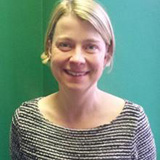A few weeks ago, I started working at National Voices—the umbrella body bringing together health and care charities large and small in England. One of the first milestones that was achieved soon after my arrival (and I can therefore not claim any part of its success), is the launch of our Peer Support Hub—which brings together good quality evidence about how you can grow, sustain, measure, or evaluate peer support. It was developed and designed with a community of practitioners and voluntary sector organisations who work in this space, responding to what they said they need to have more impact.
Maybe in a previous life I would have thought that this is worthy, but a bit marginal. Doesn’t the voluntary and community sector have bigger fish to fry in trying to transform how people, often with long term conditions or ongoing difficulties, experience the care they are offered by the NHS? But in a previous life I hadn’t lost my husband David to cancer, I wasn’t trying to support two bereaved children, and I didn’t have to figure out how to do this thing now—living with grief and loss.
Enter Trinity Hospice in South West London, who set up a support group for children who had lost a close family member. That group was facilitated by two specialists and worked through a well thought through and creative programme, teaching children some of the alphabet of emotional wellbeing: Who is on my team? What are my strengths? What triggers my worst sadness? How can I honour my pain and loss, and still live a life? At the same time as the children were doing this heart breaking, heart mending work, “their” adults were convened in a room nearby—partly as a backup in case of serious wobbles, and partly to see what it was we actually needed.
A counsellor was on hand and often had prepared a topic guide or exercise she wanted us to work through. At times we politely agreed. But mostly, all of us just wanted to talk—and listen—to each other, not really a professional. We have travelled such a distance together, these last eight weeks. I now trust and care for these people to such an extent that I find it quite hard to remember what I felt initially when we first met: that we were just too different to help each other. The grandmother who lost her daughter and is now looking after a little boy who doesn’t have a mum anymore, and never really had a dad, in a one bed-room flat in West London. The dad whose children are so young and whose grief is so raw he hasn’t even organised a funeral or memorial for the love of his life yet. I remember feeling overwhelmed by the sheer weight of the emotions we were sharing with each other, the depth of despair we were all carrying.
But then something happened. Because they were different from me, I could see more clearly the work they were doing—the quiet heroism of getting up for your children, of doing your damn hardest to limit the impact this trauma will have on them. I could hear and see the enormity of this task—and how it is discharged through endless little acts of love and strength: bath time, book time, remembrance, birthdays and homework. And it allowed me to recognise that I am doing this, too. And then I heard my peers describe how they need to lay down this responsibility from time to time, how they create little spaces in their week where they are allowed to play, where they have that sneaky pint or two with someone who isn’t family, who doesn’t need to know the depth and breadth of their pain. And it enabled me to see that I need this too, that I am entitled to claim little islands of freedom for myself.
So I have experienced the power of peer support first-hand. That there is so much we, who share an experience, can teach each other. And as always with community building and connection making, the impacts are profound, but they don’t happen entirely spontaneously. We needed to be brought together, we needed some help with ground rules and facilitation from time to time. As I say in my day job “the voluntary and community sector is good value, but it isn’t free.” Imagine what we could achieve for people if we were much more strategic about combining the amazing power of peers with formal or professional services. The NHS Long Term Plan, and the Universal Model of Personalised Care, say a lot of good stuff about this. National Voices stands ready to help make this real. Our Peer Support Hub is one small contribution to giving non-medical and informal support the status it deserves.
 Charlotte Augst is the chief executive of National Voices
Charlotte Augst is the chief executive of National Voices
Twitter: @CharlotteAugst
Competing interests: None further declared
